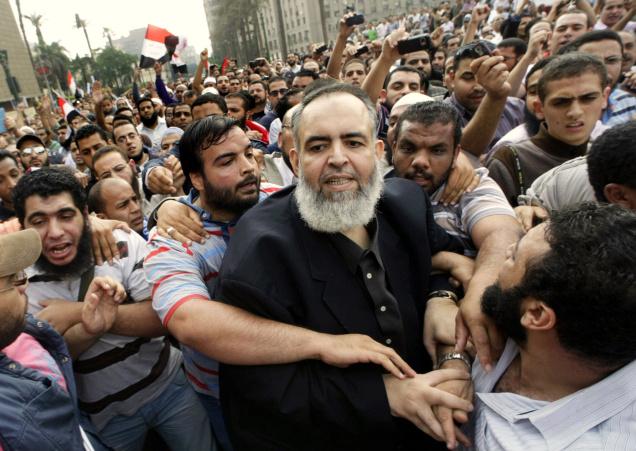
Cairo, April 18: Clashes erupted near the electoral commission here following rejection of the presidential candidature of Salafist politician Hazim Abu Ismail, officials said.
Supporters of Ismail clashed last evening with Central Security Forces tasked with guarding the headquarters of the Presidential Election Commission in Heliopolis, they said.
The Commission confirmed that 10 candidates have been barred from running for president owing to irregularities in their applications, including Ismail.
The officials said his supporters raised shoes at the forces after the decision to disqualify Ismail, who later called for an open-ended sit-in protest in front of the Commission against his exclusion from the race.
“I feel that what happening is conspiracy and treason,” Mr. Ismail said.
Ismail’s supporters said hundreds of them were on their way to join the sit-in, State-run Middle East News Agency reported.
The radical leader had accused the Commission of using forged documents to prove that his mother, Nawal Abdel Aziz Nour, held US citizenship, which became the reason for his exclusion.
According to the Constitutional Declaration of March 2011, presidential candidates must be Egyptians born to Egyptian parents.
Ismail and his supporters accuse Western countries and Egypt’s ruling generals of trying to keep him out of contention from next month’s ballot.





Comments
Add new comment